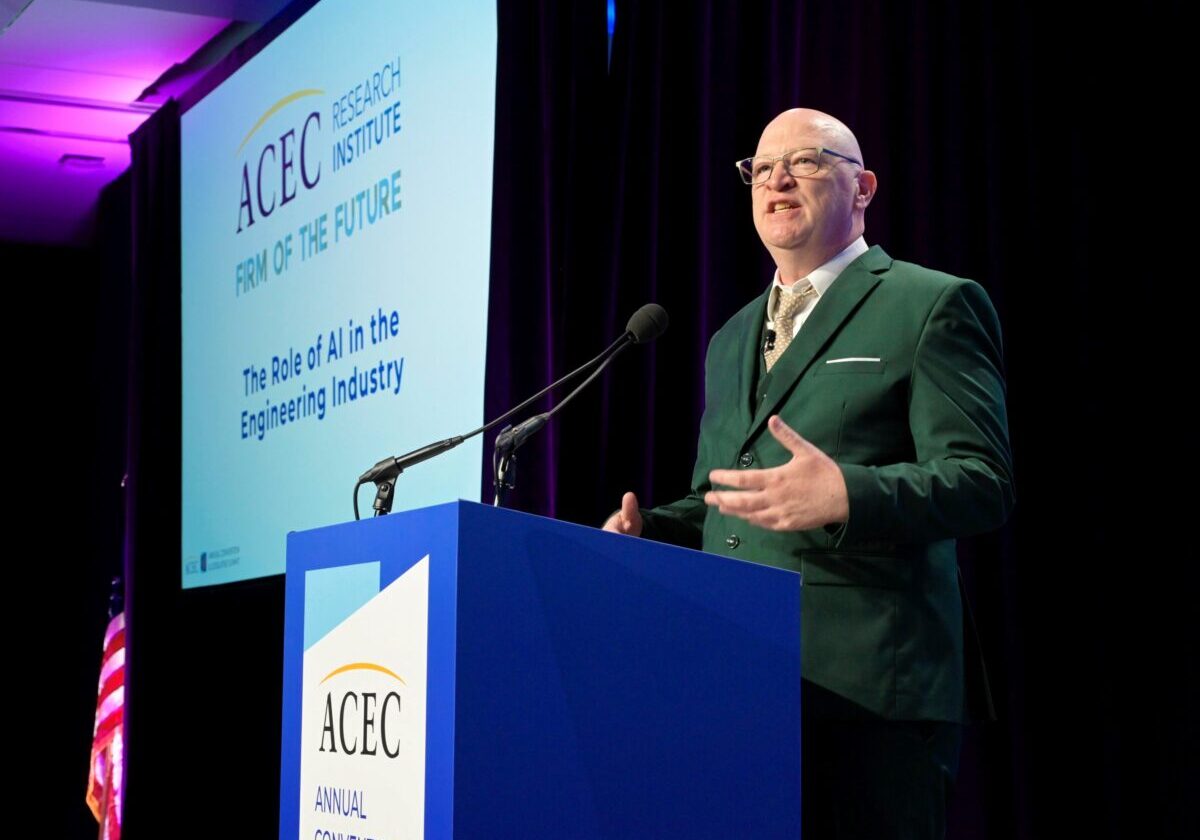Artificial Intelligence (AI) won’t change what engineers are. It will change what engineers do.
That’s the key takeaway from the ACEC Research Institute’s newly released study on the role of AI in the engineering industry. The Institute’s Senior Research Consultant Joe Bates delivered a preview of the study at Monday’s General Session of the Annual Convention and Legislative Summit. Bates took the lectern and pointed attendees to take note of his green suit—an intentional wardrobe choice that he promised to explain at the end of the presentation.
It is no coincidence that this AI study is the first research released under the auspices of the Institute’s Firm of the Future initiative. It is both an acknowledgment and an admission that there IS no future for engineering firms that doesn’t in some way involve AI. The question, Bates said, is how firms will use it—and how well. That will be the dividing line between firms that thrive and firms that don’t. “The rise of machine learning has fundamentally changed the equation,” he said. “It’s not about robots taking over the world. AI doesn’t replace. It amplifies and augments.” AI has the potential to change the game around employee management and engagement, enabling less experienced workers to be more productive, more quickly—and senior engineers to spend less time with the minutiae of their jobs and more time mentoring and creating. The upshot: give over to AI what AI can do and find that there is more time for what AI can’t do—the kind of tasks that require human interaction and involvement.
In a survey of engineering firm executives, more than eight in 10 respondents said AI is important to their success. They point to use cases that range from writing proposals to streamlining their firm’s employee onboarding processes. These findings indicate that AI has the potential to bring about enterprise-wide transformation to firms that use it well and use it wisely. The biggest hurdle, Bates said, is a human one. “Cultural change is hard.” But he stressed, “AI is not optional. For firms, it’s not about whether to adapt, but how. We must keep our eyes on something bigger than efficiency. It’s not just about faster, but better.”
As for that green suit: Bates joked that it was his Wizard of Oz costume, appropriate for his showing what was behind the AI curtain. And he had one final surprise for attendees: Bates’ entire speech—his engaging, funny, compelling speech—was largely a product of AI.
The Research Institute’s The Role of Artificial Intelligence in the Engineering Industry study can be read here.





